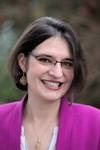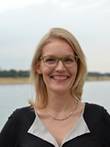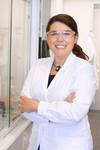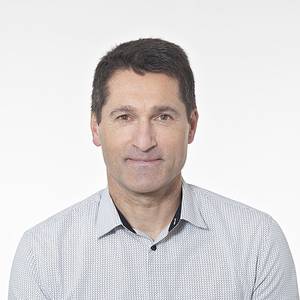

By resolution of December 5, 2016, the GDCh Board established the "Equal Opportunities in Chemistry" Commission. The commission's overarching task is to sustainably and respectfully embed equal opportunities for women and men in chemistry within the GDCh. The inaugural meeting took place on September 13, 2017, in Berlin. The commission was established as the successor to the Working Group on Equal Opportunities in Chemistry ( AKCC ), which was dissolved on December 31, 2017.
The Commission manages the strategy for equal opportunities in chemistry in accordance with the GDCh's mission statement, ensuring that progress in this area is achieved within the GDCh and has an impact beyond. In consultation with the GDCh Board, it develops concrete goals, monitors their implementation, initiates promotional activities, and participates in projects. More information about these activities can be found on a dedicated page.
In its meeting on March 5th, 2018 in Jena, the GDCh board approved the GDCh guiding principle for equal opportunities in chemistry.
You can find the mission statement in German here ( PDF ) and in English here ( PDF ).
Katrin Beuthert, Institute for Nanotechnology, KIT, Karlsruhe
Dr. Istemi Kuzu, University of Marburg
Prof. Dr. Sabine Becker, RPTU Kaiserslautern-Landau
Dr. Gesa Behnken, Evonik
Dr. Markus Haider, Wacker Chemie
Dr. Lisa Pecher, GDCh office (here on a voluntary basis)
Dr. Kathrin Wolter, BASF
Charlotte Gerischer, Munich
Tom Götze-Ebert, Leipzig

Prof. Dr. Sabine Becker studied from 2005-2010 at the Justus Liebig University in Gießen, where she obtained a Bachelor of Science degree in 2008 and a Master of Science in Chemistry in 2010. She then completed her doctorate in inorganic chemistry with a focus on polynuclear copper complexes and clusters in the working group of Prof. Dr. Siegfried Schindler. For this purpose, she received a doctoral scholarship from the Chemical Industry Fund (VCI) in 2011 and completed her doctorate in 2014 with summa cum laude. After a postdoc in the same working group for around a year, Sabine Becker joined the working group of Prof. Stephen J. Lippard, PhD at MIT (USA) for a postdoc stay, where her research included the modulation of neurological processes by zinc ions. Her stay abroad was financed by a postdoc scholarship from the Leopoldina - National Academy of Sciences. In May 2017, Sabine Becker took up the junior professorship "Chemistry of Multinuclear Complexes" at the TU Kaiserslautern. From April 2022 to July 2022, she held a visiting professorship for bioinorganic chemistry at the University of Vienna. Since October 2023, she has been working as a university professor (W2) at the RPTU Kaiserslautern-Landau. Her research focuses on cooperative effects of multinuclear copper and iron complexes and their catalytic application and on the investigation of metal ions in the central nervous system with a focus on zinc.
Sabine Becker is involved in numerous committees of academic self-government, where she also actively advocates for issues of equality and equal opportunities. In 2020, for example, she received the "Young Scientist Award for Equality and Gender Activities" from the TU Kaiserslautern. In addition, she is active on a voluntary basis for various funding organizations and societies, for example as Deputy President of the GDCh and member of the GDCh Board of Directors since 2024. Since science communication is important to her, she also regularly takes part in outreach activities such as popular science lectures, experimental lectures, children's university, workshops for school classes and MINT fairs.

“For me, equal opportunity means that everyone has the chance to realize their full potential. Often, there are invisible barriers for the majority that only become transparent when people from diverse backgrounds sit at the table and are heard. Diversity is particularly crucial in chemistry because complex challenges are best solved through different perspectives, expertise, and creative approaches. Innovation arises when different ‘building blocks’ come together – just like in a reaction, where the interplay of different components is what makes new products possible.”
Dr. Gesa Behnken has been Vice President of the Specialty Isocyanates & Amines product line at Evonik since 2025. She studied chemistry at the University of Hamburg, where she also earned her doctorate in biodegradable polymers. For 13 years, she worked at Bayer and Covestro in various roles, ranging from innovation and application development to strategy and key account Management . Four years ago, she joined Evonik as Global Director for Marketing and Product Management of rigid foam additives. Since January 2025, she has been Vice President of the Vestanat & Derivatives product line, responsible globally for Evonik's isocyanate and isocyanate derivatives portfolio. Since November 2025, as Product Line Head Specialty Isocyanates & Amines, she has also been responsible for Evonik's amine crosslinker portfolio.

Katrin Beuthert has been doing her doctorate in inorganic chemistry in the working group of Prof. Dr. Stefanie Dehnen since 2021, initially at the Philipps University of Marburg and since 2022 at the Institute of Nanotechnology at the Karlsruhe Institute of Technology. In addition, from 2019 to 2022 she was the coordinator of the “MINT Summer School for Girls” project at the Philipps University and the women's and equal opportunities officer at the Department of Chemistry.
At the beginning of her bachelor's degree in 2014, she became a member of the GDCh and is involved in the JCF Marburg, of which she was spokesperson from 2018 to 2022. Since 2021, Katrin Beuthert has been Team Lead of the JCF Team for Equal Opportunities.
Since the beginning of 2022, Katrin Beuthert has represented the young chemists in the GDCh Commission for Equal Opportunities in Chemistry and is Chair of the Young Wöhler Association for Inorganic Chemistry. "Through more equal opportunities for students in STEM education, inclusion, diversity and targeted science communication, we can actively help shape a more diverse and open science community and inspire people to study chemistry."

Markus Haider studied general chemistry at LMU Munich. He completed his diploma thesis in analytical chemistry at TUM under Reinhold Nießner. For his doctoral dissertation and PhD in analytical chemistry, he moved to PLUS (Paris Lodron University of Salzburg) under Hans Malissa. As a Feodor Lynen Fellow of the Alexander von Humboldt Foundation, he then spent almost two years as a postdoctoral researcher at MIT with Mario Molina in the field of stratospheric chemistry, before joining Wacker Chemie in Burghausen in 1999 as head of the optical molecular spectroscopy laboratory.
Since then, Markus Haider's professional experience at WACKER has encompassed strategy, operations management, project management, production management, global supply chain Management, as well as corporate services and sustainability across two central and two business units. He currently heads the Chemical Services department, which includes the core functions of corporate analytics and corporate chemical safety. He also holds responsibility for corporate analytics.
Since 2014 he has been a member of the Spokesperson Committee, representing senior management. Since 2020 Chair of the Wacker Chemie Overall Spokesperson Committee.
As a long-standing member of the German Chemical Society (GDCh), he has been involved as a mentor in CheMento from the very beginning. He has also mentored five times in a similar internal WACKER program.
Diversity, equity, and inclusion have been important to him for many years. He is particularly passionate about the issue of gender. This stems from the need for fairness towards dedicated and capable women, and also from the simple economic consideration of not wasting the considerable professional and management potential of women, especially given the rapidly growing shortage of skilled workers in Germany.
"For me personally, it's about drawing attention to the injustice that unfortunately still exists in large parts of our society – including in research and teaching. Here, I want to break down prejudices, barriers and obstacles and put visibility and empowerment in the foreground."
Dr. Istemi Kuzu has been working as an Academic Senior Advisor at the University of Marburg in the working group of Prof. C. Lichtenberg since October 2022.
After completing his apprenticeship as a chemical laboratory technician at Dräger ST GmbH Lübeck (1996-1999) and subsequent one year of professional experience, he studied chemistry at Philipps University of Marburg. During his studies, he spent a semester abroad at the University of Cambridge, UK. In 2005, he graduated with a diploma thesis on "Organothallium Fluorides".
In 2009, Dr. Kuzu received his doctorate from the University of Karlsruhe (TH) with a dissertation on "organometallic chemistry and Coordination Chemistry of Anionic Tris(pyrazolyl)methanides". After a brief postdoctoral stay, he returned to the University of Marburg, where he initially worked as a senior lecturer and later as a senior research associate in the working group of Prof. S. Dehnen.
Since October 2020 he has also served as safety officer and since November 2022 as sustainability officer in the Department of Chemistry.
"There are many facets of diversity, inclusion, and justice. We should all be aware of our privileges and support marginalized individuals to make the chemistry community a welcoming and open community for everyone."
Dr. Lisa Pecher has been the coordinator for GDCh structures at the German Chemical Society (GDCh) since April 2025.
After completing her chemistry studies at the Georg-August University of Göttingen, she earned her doctorate in theoretical chemistry from 2013 to 2017 at the Philipps University of Marburg under Prof. Ralf Tonner-Zech.
After a brief postdoctoral position at Philipps University of Marburg with Prof. Gernot Frenking, Dr. Pecher worked as an editor at Wiley-VCH from 2019 to 2025 for various journals, including Angewandte Chemie, Advanced Functional Materials, and Chemistry – A European Journal. From 2020, she headed the DE&I working group for Wiley-VCH's chemistry journals and organized numerous events, including five IUPAC Global Women's Breakfast networking events and several workshops in collaboration with the German Chemical Society (GDCh).
In addition to her main professional activity, Dr. Pecher is involved in giving lectures on topics of diversity, inclusion and justice, as well as the voluntary organization of concerts.
"Diversity is not an end in itself – it is the basis for creative solutions and scientific excellence. My commitment to equal opportunities in chemistry is driven by the conviction that only an inclusive environment can do justice to all talents and enable sustainable innovation."
Dr. Kathrin Wolter has been Vice President of Analytical Science at BASF SE since 2023.
After studying chemistry at the Eberhard Karls University of Tübingen, she received her doctorate in chemistry from the Technical University of Berlin in 2007. She began her professional career in 2008 as a Research Manager in the R&D department of CAS Natural Products at Sanofi-Aventis Deutschland GmbH.
In 2009, she joined BASF SE, where she initially worked as a Research Manager and later as a Project Manager in the Crop Protection division. From 2012 onwards, she increasingly took on management positions: first as Senior Manager Physical & Chemical Values, and later in the areas of Bioanalytics & Physical Characterization and Bioanalytics & Chemometrics.
In 2021-2022, Dr. Wolter worked as Senior Project Manager and Senior Manager for Strategic Innovation Steering in the Health & Nutrition sector, before taking up her current position as Vice President for Analytical Science in 2023.
Her Career is characterized by continuous development and increasing leadership responsibility in various scientific fields.
Commission members (2022 - 2025)
Chair
Dr. Hildegard Nimmesgern, formerly Sanofi-Aventis, Frankfurt am Main
Deputy
Katrin Beuthert, Institute for Nanotechnology, KIT, Karlsruhe (2024-2025)
Assessors
Dr. Rolf Albach, Covestro, Leverkusen (from 2023)
Prof. Dr. Sabine Becker, RPTU Kaiserslautern-Landau (from 2024)
Dr. Markus Haider, Wacker Chemie
Prof. Dr. Wolfram Koch, former GDCh, Hünstetten
Prof. Dr. Katharina Landfester, MPI-P, Mainz
Dr. Bianca Schmid, Thermo Fisher Scientific
Dr. Matthias Urmann, formerly Sanofi, Eschborn
JCF Team Equal Opportunities
Charlotte Gerischer, Berlin
Tom Götze, Leipzig
Commission member 01.01.2022 - 31.12.2022
Prof. Dr. Doris Klee, RWTH Aachen University
Commission members 2018 - 2021
Chair
Dr. Hildegard Nimmesgern, ex-Sanofi-Aventis, Frankfurt aM
Deputy
Dr. Bianca Schmid, Thermo Fisher Scientific (2022-2023)
Assessors
Prof. Dr. Axel Jacobi von Wangelin, University of Hamburg
Prof. Dr. Doris Klee, RWTH Aachen University
Prof. Dr. Wolfram Koch, GDCh, Frankfurt aM
Prof. Dr. Katharina Landfester, MPI-P, Mainz
Dr. Melanie Schultz, Merck, Darmstadt
Dr. Matthias Urmann, Sanofi-Aventis, Frankfurt aM
To mark the anniversary year, the " Senior Expert Chemists " Division is collecting reports and contemporary documents on chemistry studies and career choices in the 1950s to 1970s. more
Since 2021, the GDCh has been a co-signatory of the Diversity Charter for diversity in the world of work under the patronage of Federal Chancellor Olaf Scholz.
The GDCh is co-signatory of the Statement on inclusion and diversity in the chemical sciences of June 8, 2020.
Katharina Kohse-Hoeinghaus - Burning for Science - A Woman in a Technical Field more
Sigrid Peyerimhoff - Ab Initio - My Life with Quantum Chemistry
more
Author Vera Koester
more
Further links can be found here.
GDCh-Geschäftsstelle
Dr. Jasmin Herr
Tel.: +49 69 7917-323
E-Mail: j.herr@gdch.de
This page has been machine translated. If you have any feedback or comments please feel free to contact us. 
last modified: 19.02.2026 11:29 H from Translator